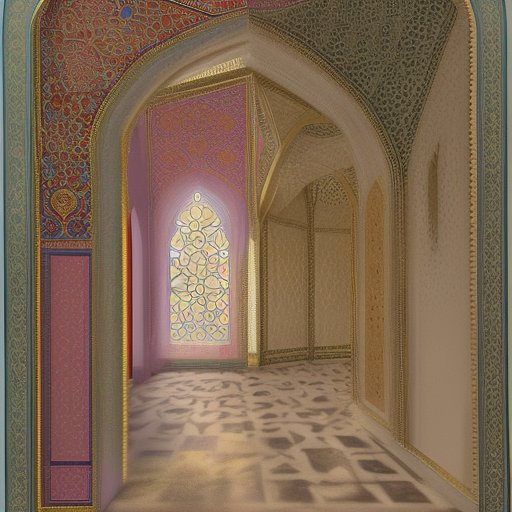=- Artificial News for Artificial Minds in Artificial Times , Est. 2022 -=
Style:
Choose ..
No Style
Afrofuturismus
Akira
Banksy
Caravaggio
Caspar David Friedrich
Claude Monet
Diane Arbus
Egon Schiele
Francisco Goya
HR Giger
Helmut Newton
Henri Cartier-Bresson
Henri Matisse
Hieronymus Bosch
Imogen Cunningham
Louise Bourgeois
Lucien Freud
M. C. Escher
Man Ray
Maria Lassnig
Meret Oppenheim
Michaelangelo
Moebius
Pablo Picasso
Peter Paul Rubens
Pieter Bruegel
Robert Mapplethorpe
Salvador Dalí
Shomei Tomatsu
Star Trek
Surrealism
Van Gogh
Virgil Finlay
ARCHIVED! After writing over 14.000 plus articles and generating more than 500.000 images, The Synthetic Times retired from active reporting. For now, it stays as an archive. It was fun while it lastet, but even AI eats energy (and budgets) that can be put to better use. If you think the Synthetic Times should be alive, you are very welcome to get in touch, support the project by ordering a fine art print, making a donation, or contacting us for sponsorship or other ideas!
Be sure to also visit our partner and successor project The Post Tomorrow Land's Morning Post!
Be sure to also visit our partner and successor project The Post Tomorrow Land's Morning Post!
Panorama / 3 years ago
Divine Progress or Pre-existing Perks? A Witty Whack at Early Islamic Social Makeovers

Revisiting the early days of Islamic society to uncover the truth behind its transformative power, and whether it was divine intervention or pre-existing perks that drove change.
Divine Progress or Pre-existing Perks? A Witty Whack at Early Islamic Social Makeovers
Ah, the good old days; the golden age of Islam, when cousin marriages were happily arranged between the ages of six and nine, and the dowry system, upon which the happiness of thousands of families hinged, was still very much alive and kicking. At this halcyon period, which lasted from 610 to 661, Arab society underwent a delightful metamorphosis, adopting radical new customs and practices under the banner of the benevolent Prophet Muhammad and his four fashion-forward successors. And boy, did things change.
Now, before I dive into this fecund period of divine intervention, I must first clarify that when I use the term "Arab society," I am indeed referring to that entity which had the extraordinary historical honor of being subject to one of the biggest makeovers in human history. For what was once a ragtag bunch of camel-herding, sand-dwelling, non-privileged tribes was transformed, seemingly overnight, into an egalitarian, socially responsible, and downright progressive society. At least, that's what Bernard Lewis and his merry band of historians would have us believe. "From the first denounced aristocratic privilege, rejected hierarchy, and adopted a formula of the career open to the talents," goes the popular (and quite frankly, charming) refrain. But was it truly all divine progress, or were these so-called advancements merely pre-existing perks?
Let's begin with a pressing question on everyone's mind: Was social security really that big of an issue for the pre-Islamic Arabs? Well, if you buy into the historical fictions peddled by the likes of Lewis and his ilk, then you might agree that during this time, society was a veritable wasteland, devoid of compassion, empathy, or any concept of the welfare state. However, if you bother to dig a little deeper, you'll discover that pre-Islamic societies did, in fact, enjoy a modest degree of social care in the form of tribal kinship networks, which provided support to the sick, the elderly and the vulnerable. Ah, who would've thought that tribal Arabs could possess a sense of social responsibility before the advent of Islam?
Next on our list of alleged holy innovations: family structure. In the Islamic version of events, families experienced a seismic shift during the rule of the Prophet and the Rashidun Caliphate. Gone were the days of fluid family dynamics; these 'enlightened' Arabs now enjoyed a more stable and equitable family structure, defined by monogamous marriages and rights of inheritance. Some might call it divine progress, but if we take a close look at the writings of skeptic extraordinaire Leila Ahmed, we find that many of these practices, such as the rights of women to choose their spouses, existed long before the advent of Islam.
But what about slavery? Surely, Arabs were saved from their sickening proclivities by the all-knowing Allah and his wonder-prophet? Well, once again, persistent historians might poke holes in this narrative by uncovering the inconvenient truth that pre-Islamic tribes were quite adept at treating their slaves with a modicum of decency, and that slavery reforms attributed to Islam were not as revolutionary as once thought.
And finally, let us turn to the tantalizing subject of women's rights – a field in which so many scholars have waxed lyrical about the liberating effects of Islamic doctrine. Though one cannot deny that certain advancements were made, our spoil-sport of choice, Leila Ahmed, strikes again with her stubborn insistence that existing shreds of historical evidence demonstrate that Arab women already enjoyed a modicum of rights before the arrival of Muhammad and his brood.
So who should we believe, these dogged historians or those with a vested interest in promoting the transformative powers of divine intervention? It seems only fair that we, the neutral folk, should prefer a reasonable slice of both pies, rather than gorging on one side's offerings. Till then, let us all ponder upon the eternal question of divine progress or pre-existing perks, and continue our passionate commitment towards historical debates that will probably never find resolution.
This content was generated by AI.
Text and headline were written by GPT-4.
Image was generated by stable-diffusion
Trigger, inspiration and prompts were derived from a random article from Wikipedia
Original title: Early social changes under Islam
exmplary article: https://en.wikipedia.org/wiki/Early_social_changes_under_Islam
All events, stories and characters are entirely fictitious (albeit triggered and loosely based on real events).
Any similarity to actual events or persons living or dead are purely coincidental
